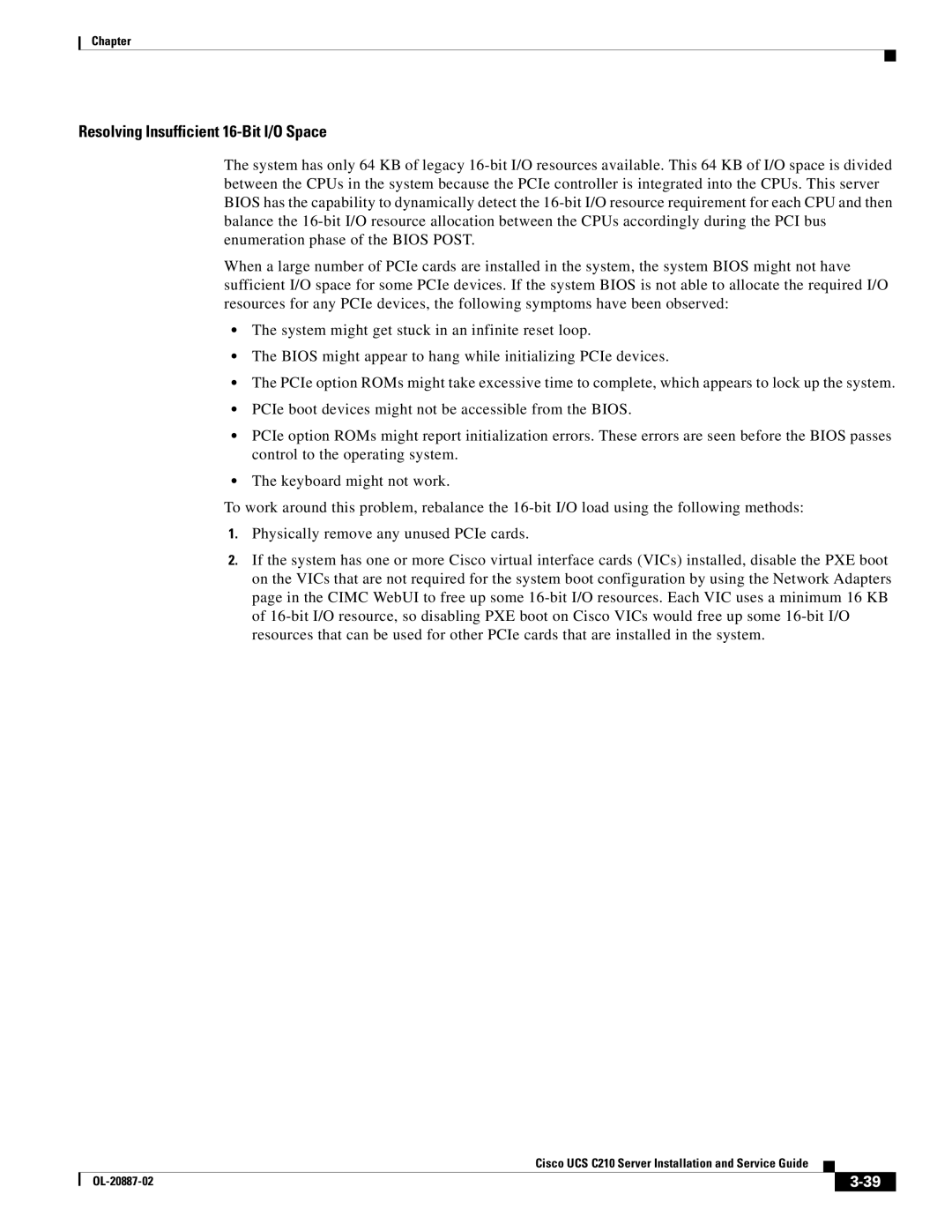Chapter
Resolving Insufficient 16-Bit I/O Space
The system has only 64 KB of legacy
When a large number of PCIe cards are installed in the system, the system BIOS might not have sufficient I/O space for some PCIe devices. If the system BIOS is not able to allocate the required I/O resources for any PCIe devices, the following symptoms have been observed:
•The system might get stuck in an infinite reset loop.
•The BIOS might appear to hang while initializing PCIe devices.
•The PCIe option ROMs might take excessive time to complete, which appears to lock up the system.
•PCIe boot devices might not be accessible from the BIOS.
•PCIe option ROMs might report initialization errors. These errors are seen before the BIOS passes control to the operating system.
•The keyboard might not work.
To work around this problem, rebalance the
1.Physically remove any unused PCIe cards.
2.If the system has one or more Cisco virtual interface cards (VICs) installed, disable the PXE boot on the VICs that are not required for the system boot configuration by using the Network Adapters page in the CIMC WebUI to free up some
|
| Cisco UCS C210 Server Installation and Service Guide |
|
| |
|
|
| |||
|
|
|
| ||
|
|
|
| ||
